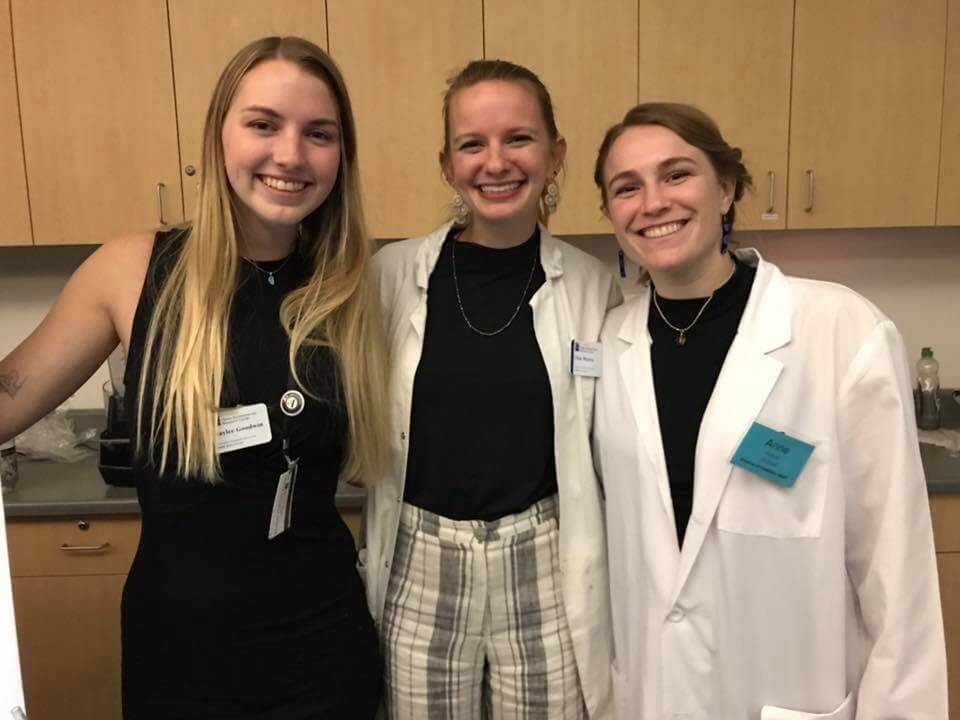I joined the Sierra Nevada AmeriCorps Partnership because it offers a way to act on my values of social justice in a tangible way. Through my education and life experience, I’ve found a home for my values in environmental justice, which is about dismantling systems of oppression which elevate a few over many. Environmental justice also has an implicit call to action, and my year of service offers a necessary and effective avenue through which I can enact change.
I believe social, environmental, and gender justice are all intertwined, and these interconnections are brought into further focus by the global climate catastrophe and the stresses it puts on those impacted the most. In my current position as an Education Programs Associate at UC Davis Tahoe Environmental Research Center, I have the opportunity to interact with students who are and will be on the front lines of the climate justice movement. If Greta Thunberg has taught us anything, young people are feeling the impacts of climate change and want to do something about it. Having the chance to help guide their learning as an informal educator has been a great experience so far as I can not only inform them about the science behind climate change, but also give them hope and empower them to make change. By joining hands with community leaders already working to improve the lives of their families and their neighbors, I am using my year of service to learn from the many years of hard work and experience of others. I also hope to make lasting connections with community members in order to continue my lifelong commitment to community-based social and environmental justice.
I have always done my best to help and respect others, whether through my day-to-day interactions, my volunteer experience, or in the workplace. This is reflected in the language I use when talking with others, my inclination to listen before I speak, and the pleasure I get from sharing a meal or batch of cookies with my roommates, friends, or family. It is also reflected in the projects and movements in which I’ve taken part. Social, environmental, and gender justice do not just happen through wishful thinking, and action is essential to creating change. I do give as generously as I can to charities I find impactful, but I have also donated my time and energy to organizations that support causes such as immigrants’ rights, children’s access to sports, animal welfare, food security and sovereignty, environmental justice and stewardship, and women’s rights. These experiences have given me the chance to really engage with my community and give back in ways that are necessary and impactful, not just wishfully generous. I have also learned a lot through my internships with nonprofit and governmental organizations, learning how we can help one another outside of the world of business and capitalism.
I think learning from and about a community is an important first step in learning how you can help, and that’s why the longevity of service offered through the AmeriCorps program is especially important. I have always moved around, but I have found friends and a family in each community I have called home. This was true of my semester abroad in Zanzibar, Tanzania. Staying with several homestay families humbled me and allowed me to experience true generosity and hospitality of others. This has also been true in the Tahoe area. I cherish the opportunity to offer the same sort of care and support to others as I’ve learned from my homestay families. The chance to have a tangible impact on a community I care about is an exciting opportunity, and I hope to carry the ideals of service, humility, and generosity into my future career and life.
The Sierra Nevada Alliance is a proud to administer the SNAP Program, which helps strengthen conservation efforts across the Sierra by providing work force capacity support. SNAP Members are Alliance staff placed to serve, annual terms, at over 16 conservation sites across the Sierra. Project work at each site is implementing prioritized watershed projects ranked through a competitive application process. Many SNAP Members go on to become conservation leaders in the region and state. While the Coronavirus has affected many, SNAP Members continue to serve their host sites either from home, or in some cases, in the field providing essential field work.


